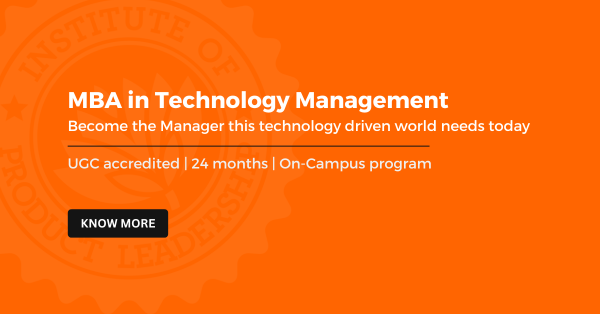How to Choose the Right MBA Specialization for Your Career Goals
- blogs
- 5 min read
By Arnould Joseph– Product Marketing Manager
The decision to pursue an MBA is a significant career move, but choosing the right specialization can be even more crucial. With the evolving business landscape, MBA programs now offer a wide range of specialized tracks that align with industry demands. The right choice can help professionals gain a competitive edge, secure higher salaries, and accelerate career growth.
If you’re considering an MBA but are unsure about which specialization to pursue, this guide will help you make an informed decision based on industry trends, career goals, and future opportunities.
Key Takeaways:
- Choosing the right MBA specialization helps professionals gain a competitive edge, secure higher salaries, and align with industry demands.
- Industry trends, career goals, and salary potential are key factors in selecting an MBA specialization. High-demand fields include AI, analytics, and digital marketing.
- Specialized MBAs in Technology Management, Business Analytics, and Digital Marketing offer lucrative career opportunities in rapidly growing industries.
- Future-proofing your MBA choice by integrating business and technology ensures long-term career success in AI-first, digital-driven companies.
1. Understanding the Importance of MBA Specialization
Traditionally, MBAs were focused on general management, finance, and marketing. However, with the rise of technology, digital transformation, and data-driven decision-making, companies are now looking for specialized business leaders who can navigate these changes.
According to a GMAC Corporate Recruiters Survey, 79% of companies prefer hiring MBA graduates with a specialized focus rather than a generalist degree.
Choosing the right specialization can:
- Help you stand out in a competitive job market
- Align your education with high-growth industries
- Open doors to specialized and high-paying leadership roles
2. Factors to Consider When Choosing an MBA Specialization
A. Industry Demand & Job Market Trends
Before selecting an MBA specialization, it’s crucial to research industry trends and emerging job opportunities. The World Economic Forum’s Future of Jobs Report highlights the fastest-growing business roles, including:
- Digital Transformation & AI Strategy
- Product Management & Technology Consulting
- Data Analytics & Business Intelligence
- Cybersecurity & Risk Management
These roles require business leaders with a strong grasp of technology, making specializations like Technology Management, Business Analytics, and Digital Strategy highly valuable.
B. Your Career Goals & Aspirations
Ask yourself:
- Do I want to work in corporate leadership, entrepreneurship, or consulting?
- Am I passionate about finance, marketing, operations, or technology?
- Where do I see myself in 5 to 10 years?
For example, if your goal is to lead AI-driven business transformations, a Technology Management MBA would be a more strategic choice than a traditional General MBA.
C. Salary & Return on Investment (ROI)
Specialized MBAs often lead to higher salary prospects. According to PayScale, the average salaries for MBA graduates in different specializations are:
- Technology Management: ₹28-40 LPA
- Product Management: ₹25-35 LPA
- Finance & Investment Banking: ₹20-30 LPA
- Marketing & Brand Management: ₹15-25 LPA
By choosing a specialization aligned with high-demand skills, you increase your chances of securing a well-paying leadership role post-MBA.
3. Popular MBA Specializations and Their Career Paths
A. MBA in Technology Management
- Ideal for: Professionals looking to bridge business strategy and technology
- Career paths: CTO Office, Digital Transformation Manager, Product Leader, AI Strategy Consultant
- Industry Demand: High (especially in AI-first companies like Google, Amazon, and Microsoft)
B. MBA in Business Analytics & Data Science
- Ideal for: Data-driven professionals looking to leverage analytics in decision-making
- Career paths: Business Intelligence Manager, Analytics Consultant, Data-Driven Product Manager
- Industry Demand: Growing rapidly, with McKinsey reporting a 20x increase in demand for data-literate managers
C. MBA in Digital Marketing & E-Commerce
- Ideal for: Marketing professionals looking to specialize in SEO, content marketing, and online branding
- Career paths: Digital Marketing Manager, E-Commerce Strategist, Performance Marketing Leader
- Industry Demand: Strong, as brands increasingly prioritize online presence and data-driven marketing
D. MBA in Finance & FinTech
- Ideal for: Professionals looking to work in investment banking, wealth management, or FinTech
- Career paths: Financial Analyst, Risk Manager, Venture Capital Associate
- Industry Demand: Stable, but evolving with crypto, AI-driven trading, and digital payments
4. Future-Proofing Your MBA Specialization
With AI and digital transformation changing how businesses operate, choosing a specialization that integrates technology is key.
The Harvard Business Review states that 85% of executives believe AI, automation, and digital skills will be essential for business leaders in the next decade.
MBA specializations that blend business with technology—such as Technology Management, Digital Transformation, and Product Strategy—are more future-proof and aligned with high-growth careers.
Choosing the Right MBA Specialization
The best MBA specialization depends on your career goals, industry trends, and future job market demands. If you’re looking for a high-impact career in AI-first, tech-driven businesses, an MBA in Technology Management might be the smartest choice.
Would you choose a generalist MBA or a specialized MBA that prepares you for the future of business?
About the Author:
Arnould Joseph– Product Marketing Manager






